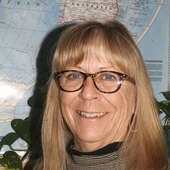- Research tips and McCook Brick Company- solid as a brick (12/16/24)
- Big Give appreciation and some railroad characters (11/15/24)
- George Randel becomes a landowner, gets married, and takes in a Buffalo Bill show (9/20/24)
- The memoirs of George F. Randel, early settler of Red Willow County (9/12/24)
- Vietnam War Memorial honors Nebraskans who served (6/13/24)
- McCook business promotions - just prior to 1893 stock market crash (5/30/24)
- Shall we dance? Meet you at the Gayway (12/8/23)
Edward Rosewater and the ‘Omaha Daily Bee’
Friday, July 6, 2018
Edward Rosewater was born in Bohemia in 1841, the son of a Jewish family, immigrating to the United States at the age of 13. He attended a commercial college and went to work for Southwestern Telegraph Company, the precursor of Western Union. Southwestern was in Alabama and Edward became caught up in the South during the Civil War only able to escape the clutches of the confederacy when transferred to Nashville which was captured by the Union Army in 1862. Rosewater promptly offered to help restore the Union Army’s telegraph lines, and after a brief visit to his family in Ohio, enlisted in the Army Telegraph Corps. Rosewater was responsible for sending out President Lincoln’s “Emancipation Proclamation” over the lines on January 1, 1863.
By the middle of 1863, Edward was living in Omaha working for Western Union and as an Associated Press agent, writing for several eastern newspapers. In 1870 he was elected to the Nebraska House of Representatives and was successful in creating the first board of education in Nebraska. Over the years he would unsuccessfully run to represent Nebraska in the Senate, but those losses do little to overshadow the work he did in his beloved country.
In 1871, Rosewater not only started the “Omaha Bee” but also began publishing a weekly Czech-language newspaper, “Pokrok Zapadu.” The Bee was Nebraska’s first regional newspaper growing to a circulation of over 2,500 by 1875 and 18,736 in 1889.
Rosewater was a smart man when it came to selling newspapers because after having been an Associated Press correspondent, he understood the draw people had for reading about the “wild west.” Consequently, he had his own traveling correspondent to cover the growing settlement of the lands along the Platte and Republican rivers west of Omaha. Smart move on Rosewater’s part and a blessing for those of us doing research on the development of those areas.
Edward Rosewater built the “Bee” building in Omaha starting in 1887 at a cost of approximately $500,000. The building, which boasted seven stories, carved beehives adorning the exterior and carved miniature beehives on the door knobs within, it was placed on part of his families’ homesteaded land, now 17th and Farnam in Downtown Omaha, and stood for 90 years until torn down for the Woodman Building erection. Edward, who died at his desk in that building in 1906, was proud of his creation and claimed it to be the world’s largest newspaper plant.
Nelson B. Updike (well-known Nebraska grain dealer) bought the paper in 1920, then buying the Omaha Daily News and merging the two into the “Bee-News,” selling that to William Randolph Hearst in 1928. Hearst in turn sold the paper to the Omaha World-Herald nine years later and the Herald promptly discontinued publication of its longest surviving rival.
If you are trying to research our area prior to the mid-1880’s, there are articles in the Omaha Bee written from the prospective of the traveling newsman that Rosewater sent west periodically. You of course, will not find anything under McCook until 1882, but you will find Red Willow, Indianola and even perhaps the early Fairview settlers mentioned. Go to www.chroniclingamerica.gov and select Omaha Bee in the newspaper dropdown to do your search.
Two weeks ago, an old column of mine was printed by my mistake, having labeled a new column with the same name as one a year earlier. Our Expo will be in October again this year, but we have not announced what the theme will be yet. The DNA presentations were last year. Please join us at 110 West C, Suite M-3, between 1-4 pm on Tuesdays and Thursdays for your research assistance.

